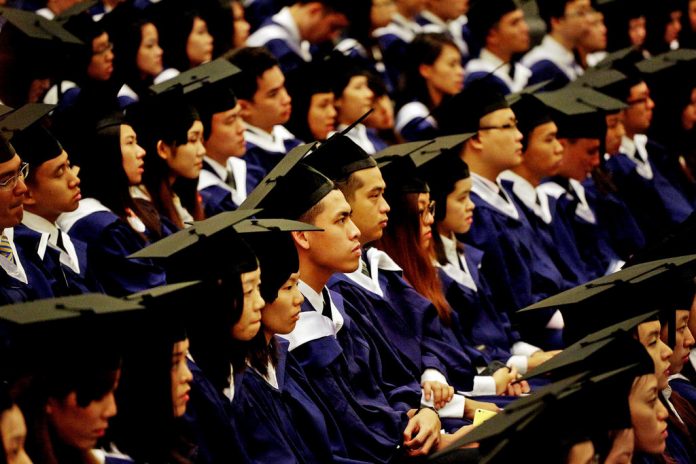The proportion of university graduates in Singapore who found permanent full-time employment six months after their final exams dropped by slightly more than 10 per cent in 2020, amid the COVID-19 pandemic. The annual Joint Autonomous Universities Graduate Employment Survey found that 69.8 per cent of fresh graduates found permanent full-time jobs last year, down from 81.7 per cent in 2019.
The survey polled 11,800 fresh graduates from full-time programmes at Nanyang Technological University (NTU), National University of Singapore (NUS), Singapore Management University (SMU) and the Singapore University of Social Sciences (SUSS). The graduates were surveyed on their employment status as at Nov 1, 2020, about six months after they completed their final examinations.
“The six AUs (autonomous universities) have stepped up efforts to support their graduates amidst the COVID-19 pandemic,” said the universities in a joint press release on Friday (Feb 19).
“On top of providing extensive career guidance and support which includes job matching, personalised career coaching and planning, and complimentary continuing education and training courses, the AUs have also tapped on their network of industry partners to curate suitable job placement and apprenticeship opportunities for graduates, such as the SGUnited Traineeships.”
Of the graduates who found employment, the percentage of those in part-time or temporary jobs rose sharply from 7 per cent to 22.3 per cent, the survey showed. Graduates on the SGUnited Traineeships Programme made up 16.9 percentage points of this figure. About half of this group said they were in involuntary part-time or temporary employment, a sharp increase from the more than one-third of this group in 2019, the survey showed. About 1.5 per cent of graduates found freelance work, down from 2 per cent in 2019.
Overall, 93.6 per cent of graduates found employment within six months of completing their final examinations, up from 90.7 per cent in 2019. The median gross monthly salary among fresh graduates in permanent full-time jobs was S$3,700, up from S$3,600 in 2019, said the universities in the press release.
Similar to 2019, graduates from information and digital technologies, health sciences and business clusters registered the highest percentages of permanent full-time employment, the survey showed. Most clusters saw no change in median gross monthly salaries, but those in arts, design and media, engineering, and information and digital technologies saw increases of S$100, S$150 and S$360 respectively in 2020.
EMPLOYMENT STATUS OF GRADUATES IN FOLLOW-UP SURVEY
In a follow up survey, 827 graduates from NUS, NTU and SMU were surveyed on their employment status on Nov 1, 2020. This was conducted for courses that typically require post-graduate practical training before the graduates can practise in their professions. The graduates polled were from the Architecture class of 2017, and the biomedical sciences and Chinese medicine, law, medicine, and pharmacy courses who finished their first year of training upon graduation in 2019.
Of those who were employed, 96.8 per cent had jobs after completing their training last year, a slight decrease from 98.6 per cent in 2019, the survey showed. 93.5 per cent of those employed had secured permanent full-time jobs, a slight decrease from 96.4 per cent in 2019. Another 0.3 per cent were freelancing, compared to 0.6 per cent the previous year.
The proportion of those in part-time or temporary employment also increased to 3 per cent, up from 1.6 per cent in 2019. Graduates under the SGUnited Traineeship Programme made up 1.3 percentage points of this figure, said the universities in the press release. Of those in part-time or temporary employment, slightly more than half said this was involuntary. The median gross monthly salary of those who found permanent full-time jobs in this group dropped from S$4,800 in 2019 to S$4,625 in 2020.




















